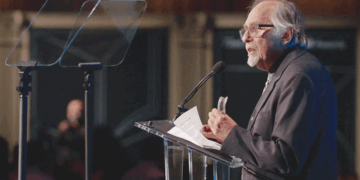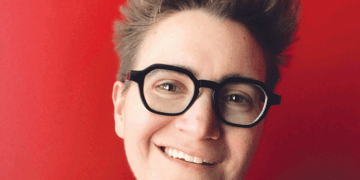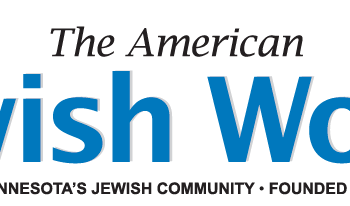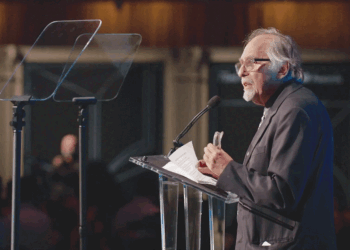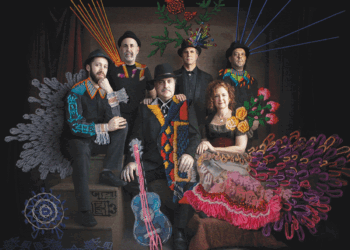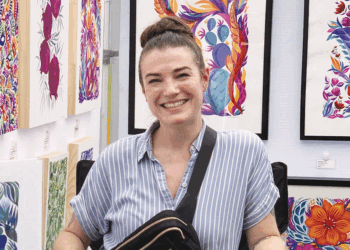The systematic slaughter of the Armenians, beginning in 1915, was a precursor of the Holocaust
By ERIN ELLIOTT BRYAN / Community News Editor
On Aug. 22, 1939, on the eve of his invasion of Poland, German Chancellor Adolf Hitler made a statement to explain, or perhaps justify, his decision: “I have placed my death-head formations in readiness… with orders to them to send to death, mercilessly and without compassion, men, women and children of Polish derivation and language. Only thus shall we gain the living space (Lebensraum) which we need. Who, after all, speaks today of the annihilation of the Armenians?”
Armenians in Minnesota and around the world will commemorate the centennial of that “annihilation” on April 24, the date in 1915 that is generally seen as the beginning of the genocide, when the Ottoman Turks targeted Armenian elites and intellectuals.
This state-sponsored policy of extermination sought to eliminate the entire Armenian population, who were a Christian minority living as second-class citizens in the Ottoman state alongside the majority Turks, who practiced Islam.
According to Richard G. Hovannisian, author of Remembrance and Denial: The Case of the Armenian Genocide, the Ottoman government “came to regard the Armenians as alien and a major obstacle to the fulfillment of its political, ideological and social goals.”
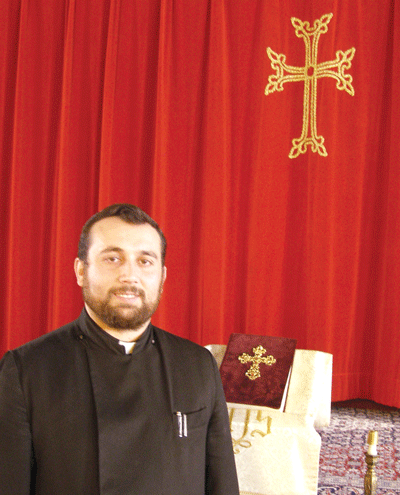
From 1915 to 1923, when the Ottoman Empire was replaced by the Republic of Turkey, more than 1.5 million Armenians were massacred — 75 percent of the entire population of Armenians in the world at the time.
Several events are planned to mark the centennial in the Twin Cities. They are sponsored by St. Sahag Armenian Church, the Armenian Cultural Organization of Minnesota, World Without Genocide, and the Center for Holocaust and Genocide Studies at the University of Minnesota.
“It is very important to remember what happened,” Rev. Fr. Tadeos Barseghyan, 30, the pastor of St. Sahag Armenian Church, told the AJW. “History repeats itself and if you don’t know the history of what happened 100 years ago, it’s hard to deal with the problems that the world is facing today. It’s important to condemn the violence, it’s important to seek justice for the mourners and it’s important to remember, and to celebrate the achievements and accomplishments that survivors and their children have made throughout these many years.”
Barseghyan’s maternal great-grandmother, Ankin, was a genocide survivor who managed to escape to the Russian side of Armenia — the territory of historic Armenia was divided between the Ottomans and the Russians — and made her way to the city of Etchmiadzin, where Barseghyan was born. Barseghyan described the city as the “Vatican of the Armenian Church,” and said his great-grandmother was raised in the church, which opened its doors to orphans of the genocide.
Ankin eventually married another orphan and raised a family. She struggled with mental health issues throughout her life and always thought she’d return to her family’s home, though she never did.
“She kept the keys of her family’s house back in Western Armenia, in Turkey, because when the Turk soldiers came, [her parents] told her, ‘Well, you have to go now, but we’ll come and get you, we’ll come and bring you back,’” Barseghyan said. “At the end of her life, she would say at the end of the day, ‘They didn’t come today.’ And when she died, they buried the keys with her.”
Growing up in Etchmiadzin, Armenia’s spiritual center, Barseghyan attended Sunday school and later served on the altar. He said his mother always wanted her son to be a seminary student and that’s the path he chose.
“I didn’t have that a-ha moment, it was a journey for me from my childhood,” Barseghyan said.
The Armenian Church allows its priests to choose celibacy or marriage. Barseghyan choose to marry, and he now has a wife and young son; the family arrived in St. Paul in 2012.
Barseghyan said the Twin Cities Armenian community is small, but growing — he estimated that it is comprised of 200 to 300 families. The community only began to organize about 10 or 12 years ago, and then purchased a former Presbyterian church, which is now St. Sahag.
Members of the community began planning for the genocide centennial in 2014. In addition to hosting a series of events, there are plans in June to install a Khachkar (cross stone) in the church’s yard in memory of those who perished.
Today, 100 years later — and despite copious documentation, scholarly consensus and international recognition — the Armenian Genocide is actively denied by the present-day Republic of Turkey. In fact, Armenian Weekly reported that Turkish President Recep Tayyip Erdogan, speaking with a French journalist on March 27, “accused Armenia of ‘fixing’ the date of the Armenian Genocide commemorations this year to coincide with the Gallipoli ceremonies Turkey is hosting on April 24.”
Armenian President Serge Sarkisian said Turkey’s commemoration of the Gallipoli battles is a “cynical act,” adding, “This is a way of injuring, of wounding the Armenian people.”
In 1990, Armenia declared independence and was the first non-Baltic republic to secede from the Soviet Union. Its independence was officially recognized in 1991, when the Soviet Union was dissolved, and is known as the Republic of Armenia.
Israel neither recognizes nor denies the Armenian Genocide, which may be due to Israel’s complicated diplomatic relationship with Turkey. In December 2014, Israel’s i24 News reported that President Reuven Rivlin reversed his stand on recognition of the Armenian Genocide.
“Israeli media reported Rivlin decided to refrain from putting his signature on an annual petition calling Israel to recognize the atrocities visited on the Armenians, having signed the document in previous years,” i24 News reported, saying Rivlin’s stance “falls in line with Israel’s official policy on the controversial matter.”
And though the U.S. government has not used the term “genocide” in connection with Armenia, Minnesota and 42 other states officially recognize the Armenian Genocide as such.
“It is unfortunate that the Armenian Genocide became a political problem, because it shouldn’t have,” Barseghyan said. “It is an unfortunate tragedy for our people and we are now trying to tell our story, we’re not trying to create a conflict.”
Despite the politics, the Armenian Genocide is seen as a “fundamental shift” in the scholarly study of genocide, according to Professor Alejandro Baer, director of the U of M’s Center for Holocaust and Genocide Studies.
He mentioned that Polish-Jewish lawyer Raphael Lemkin first learned about what happened to the Armenians as a student in Warsaw, and later lost much of his family in the Holocaust. It was Lemkin who coined the word “genocide,” in the mid-1940s, as the destruction of a nation or ethnic group.
In an interview with CBS News at that time, uploaded to YouTube by the Genocide Education Project, Lemkin states: “I became interested in genocide because it happened so many times. It happened to the Armenians, and after the Armenians, Hitler took action.”
Baer said the significance of Lemkin’s work was that genocide became “a crime that is of concern for the international community and it’s a principle of the international jurisdiction, which means that you can interfere in the business of another nation when it is committing a crime against a minority, even if it’s within the confines of the nation-state.”
The culmination of Lemkin’s years of campaigning was the Convention on the Prevention and Punishment of the Crime of Genocide (CPPCG), which was adopted by the United Nations General Assembly on Dec. 9, 1948, and defined genocide in legal terms.
Baer noted that 2015 marks the 100th anniversary of the Armenian Genocide, but also the 70th anniversary of the liberation of the Nazi concentration camps and the 40th anniversary of the genocide in Cambodia.
“These anniversaries provide a valuable opportunity to reflect, to educate, to advance scholarship concerning causes and consequences of genocide,” Baer said. “It’s not only thinking about the past, it’s commemorating with a dialogue between past and present.”
***
Among the events taking place in commemoration of the Armenian Genocide will be “Days of Remembrance: From the Armenians to the Holocaust” 1 p.m. Sunday, April 19 at the Edina Community Center, 5701 Normandale Rd. Speakers will be Dr. Ellen Kennedy, executive director of World Without Genocide, and Holocaust survivor Dora Zaidenweber. There will also be a performance of the play Upstanders: Saving Armenians and Jews.
Steve Hunegs, executive director of the Jewish Community Relations Council of Minnesota and the Dakotas (JCRC), will speak during Armenian Genocide Remembrance Day 7 p.m. Friday, April 24 at St. Sahag Armenian Church, 203 N Howell St., St. Paul.
For information and a complete schedule of events, visit: www.saintsahag.org/ArmenianGenocide.html.
(American Jewish World, 4.10.15)


